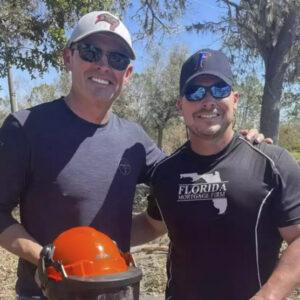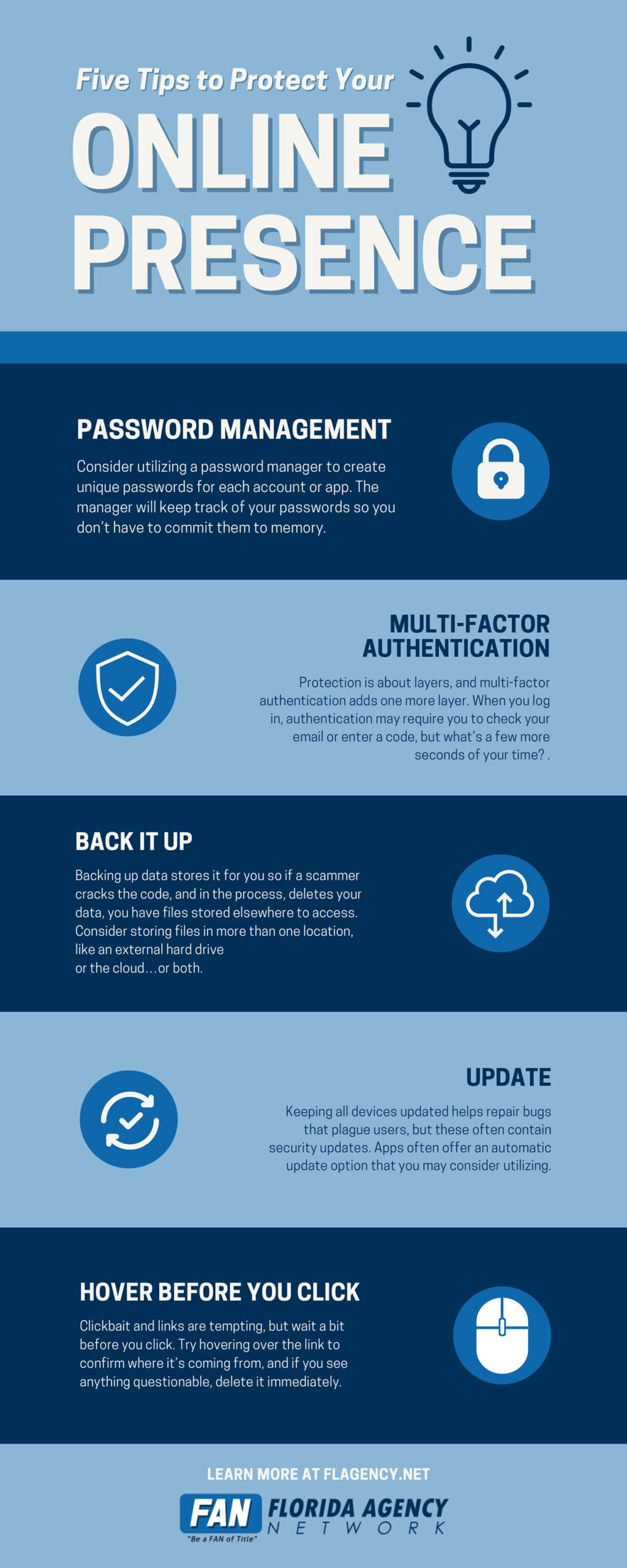Valued Client,
 We’ve seen some confusion recently with regards to the requirements of Florida’s new Conveyances to Foreign Entities Act, which took effect on July 1, 2023. Foreign principals from “foreign countries of concern” (The People’s Republic of China, Russian Federation, Islamic Republic of Iran, Democratic People’s Republic of Korea, Republic of Cuba, Venezuelan regime of Nicolas Maduro, Syrian Arab Republic) are now prohibited from owning or acquiring any agricultural land or real property on or within 10 miles of any institution or “critical infrastructure” facility anywhere in Florida.
We’ve seen some confusion recently with regards to the requirements of Florida’s new Conveyances to Foreign Entities Act, which took effect on July 1, 2023. Foreign principals from “foreign countries of concern” (The People’s Republic of China, Russian Federation, Islamic Republic of Iran, Democratic People’s Republic of Korea, Republic of Cuba, Venezuelan regime of Nicolas Maduro, Syrian Arab Republic) are now prohibited from owning or acquiring any agricultural land or real property on or within 10 miles of any institution or “critical infrastructure” facility anywhere in Florida.
We’ve been fielding questions regarding the now-required Affidavit of Non-Applicability of Restriction on Foreign Ownership – Natural Person(s) and the Affidavit of Non-Applicability of Restriction on Foreign Ownership – Entity. Specifically, who needs to produce the documents and who needs to sign them? We are attaching copies of both for your convenience. Several of our underwriting partners are requiring all buyers to sign both documents at every closing.
We would be delighted to discuss these new requirements as we understand them at the present time, but since the law is so new we do not have any solid information on how it will be applied or enforced in the times to come except as contained in the attached notices. We will not, unfortunately, be able to advise individual buyers on their specific situations other than requiring that they sign and comply with the notices attached to this bulletin. We do, however, also strongly advise that foreign buyers that are citizens of one of the subject countries speak with independent legal counsel in Florida before entering into a contract to purchase real estate in Florida because the law may impact their ability to purchase the property and that inability may result in a breach of the purchase and sale agreement.
We understand that this is new to everyone in our industry. With this bulletin, we are hoping that it helps provide some guidelines to the new process. Please note, we are unable to guide you, or your client, on whether they should enter a contract to purchase. If you have questions or would like to discuss the statute in greater detail, we are always happy to hear from you to try and help as much as we can. Simply give us a call or email us, and we’ll set a time to discuss.
Regards,
Florida Agency Network
Bulletin PDF Notice to Buyer PDF Affidavit of Compliance PDF
FLTA Notice on Affidavit(s) for Interests of Foreign Countries
 We’ve talked here before about the huge potential impact of Chat GPT. It’s since become the talk of our industry (and every other industry for that matter). The conversation has now shifted to “how can we best use Chat GPT in our business?
We’ve talked here before about the huge potential impact of Chat GPT. It’s since become the talk of our industry (and every other industry for that matter). The conversation has now shifted to “how can we best use Chat GPT in our business?
Of course, Chat GPT was quite the popular topic at our recent visit to the National Settlement Services Summit in early June. And it reminded us that the title industry has come to rely on technology more than ever. That’s a far cry from where we were not too long ago! But the days of paper files, faxes and couriers are now behind us. It’s no longer a question of whether the best title agents are automated. Instead, it’s “are they automated effectively?”
If anything, we’ve long believed that “new” technology and “effective” technology don’t always have to be the same thing. New tech can be effective, but so can previously existing technology, used properly. The real trick is determining whether a technological investment addresses a real need in one’s operation, and whether it cost-effectively performs what it was advertised to be capable of. Our title agencies, for example, make use of a great AI technology that came on the scene two or three years ago, called Alanna. Alanna is an AI technology that has conversations—not just blasts or broadcasts—with customers, which allows our team to address more complex challenges or move their closings along the line more efficiently. Alanna is what you might call a “sexy” technology.
And yet, it takes more than the shiny new technology to create a world-class operation. We’ve long been focused on using scalable resources at FAN—which has been to our great benefit throughout this ever-changing market cycle. We were among the first title firms to make use of centralized resources and eliminate true redundancies. For some of those efficiencies, we used new tech. For others, we used proprietary or existing tech. But just as important to the centralized resources approach is the team we built along with their skills, experience and talent. Today, for example, PDS isn’t just our top flight IT team. It has also become one of the top managed IT services and cyber defense firms in the industry!
It was quite interesting to see how other title firms are combining strategy, technology and other resources for improved efficiency and performance. In talking to a number of other professionals at NS3, we were amazed at how far the title industry—perhaps from necessity—has come in just a few short years. We’re seeing agents becoming increasingly open minded when it comes to JVs or affiliated arrangements. We’re seeing more and more new technology coming into the market—and it’s not all growing out of other title agents’ proprietary solutions. All of this is to the betterment of our industry. Mortgage lending is changing. It will be our duty to change and evolve along with our clients.
We at FAN, PDS and the entire FAN family will only continue to look ahead; to ask ourselves “how can we do this better?” And we welcome your ideas, input and questions as well!
 Regarding your business’s website, it’s often said that we must keep our conversions high and bounce rates low, but what does that mean? How do we go about it in the real estate and title industry?
Regarding your business’s website, it’s often said that we must keep our conversions high and bounce rates low, but what does that mean? How do we go about it in the real estate and title industry?
If you’re getting plenty of traffic without a good conversion rate, ask yourself this question: Is your bounce rate too high? Your bounce rate is the percentage of visitors who land on your website, then leave, or “bounce” off, after viewing a single page. For example, if sixty people visit your website and thirty leave after viewing the first page, your bounce rate would be 50%. Google Analytics is the most common helpful tool for gathering site data, including your bounce rate.
Why do visitors bounce? Could it be that they found everything they were looking for and didn’t need to linger? It’s possible but unlikely. Even if they did get the answer they were searching for, you still want to keep them engaged in hopes they’ll check out more of your content. After all, you want their business, right?
It can be tough to determine why visitors leave; is the content irrelevant to what they’re searching for? Are they struggling to navigate your landing page? Are there functionality issues? Whatever the reason for their abrupt departure, the good news is there are strategies to reduce your bounce rate and keep users returning for more.
What’s a “good” bounce rate? This is tricky to pinpoint because it’s relative. It depends on your industry and where your traffic comes from. What matters most is how your bounce rate compares to your industry average. It’s more about understanding what your average means within the context of your business and ensuring that it aligns with your goals. The average real estate and title industry bounce rate hovers around 41%.
Tips for reducing your bounce rate to keep visitors coming back for more:
These are just a few practical tips for engaging visitors to keep them coming back for more. While it might seem overwhelming to consider everything - start small when trying to maximize your website to reduce bounce rates and, in turn, boost conversions. Above all else, know your audience while focusing on the big picture.
 Your client is looking forward to owning a home without the hassle of lawn care, and you found a new condo they’re dying to move into. The Condominium Association handed over a thick stack of papers that covered rules and regulations. Maybe your clients just skimmed through them, but it’s time to look closer.
Your client is looking forward to owning a home without the hassle of lawn care, and you found a new condo they’re dying to move into. The Condominium Association handed over a thick stack of papers that covered rules and regulations. Maybe your clients just skimmed through them, but it’s time to look closer.
Understanding rights and responsibilities before signing the dotted line is essential for clients to enter their homes with peace of mind. Condo association agreements cover…
Condo associations have many powers spelled out in this paperwork, but they are not unlimited. Knowing their limits is crucial, so knowing condo owner rights is critical. (Check out this condo owner’s dilemma.)
So before closing on condos, encourage clients to read the association agreement thoroughly so they can live happily ever after in their beautiful new home!
 The United States' largest generation, Millennials aged 27-41, is a diverse group with various needs and desires. One thing most of them have in common…they're looking to buy their first home. The median age of first-time home buyers in 2022 was 36, right in the middle of the Millennial pack. To sell a home this year, you must understand and connect with them through marketing efforts. Realtors are using time-tested tactics to speak to these new homebuyers, so we want to give you some tips on using them too.
The United States' largest generation, Millennials aged 27-41, is a diverse group with various needs and desires. One thing most of them have in common…they're looking to buy their first home. The median age of first-time home buyers in 2022 was 36, right in the middle of the Millennial pack. To sell a home this year, you must understand and connect with them through marketing efforts. Realtors are using time-tested tactics to speak to these new homebuyers, so we want to give you some tips on using them too.
Marketers have used Dale Carnegie's strategies for over 100 years because they work. To target Millennial homebuyers, you must try his AICDC sales strategy to reach Millennials and help them close on their dream home. Here are five steps:
Using these steps, you can effectively target Millennials needing your help to find their dream home, but you don’t have to stop at Millennials. While the real estate market will continue to evolve, using these proven strategies will always be vital to reach any demographic you desire.
 Be aware that there’s a company out there offering a cash advance to homeowners willing to provide them the exclusive right to list the property for a period of 40 years. The interest is recorded in the public record. And three lawsuits filed against the company allege that the agreements the company provides their customers give the brokerage the right to foreclose on their clients homes if the homeowners’ heirs don’t assume their liability upon death.
Be aware that there’s a company out there offering a cash advance to homeowners willing to provide them the exclusive right to list the property for a period of 40 years. The interest is recorded in the public record. And three lawsuits filed against the company allege that the agreements the company provides their customers give the brokerage the right to foreclose on their clients homes if the homeowners’ heirs don’t assume their liability upon death.
The state of Florida has recently asserted that these kinds of agreement are illegal under Florida law. Real Trends (registration required) did a nice job shining some light on the process, and it’s not just happening here (nor is it only illegal here). The states of Pennsylvania and Massachusetts have now joined Florida in filing suit against a brokerage called “MV Realty,” alleging, among other things that the company targeted low-income and elderly homeowners and that they used deceptive and misleading marketing.
The article continues:
“The Attorney General in Florida stated that these liens are illegal under Florida law. MV Realty made more than 9,123 public record filings that might ‘cloud’ homeowners’ titles and Hillsborough County is one of the counties with a high number of public record filings, according to the attorney general’s office. At least 588 people in northeast Florida and southeast Georgia have signed up to the program.”
In addition, shortly before the time of this post’s publication, a Massachusetts court had granted a preliminary injunction prohibiting “homeowner benefit agreements” such as these from being offered or enforced until the pending case is resolved.
As always, we’ll keep an eye on this at FAN and continue to work with our real estate partners as well. We’ve already begun training our employees about where and how to spot the issue, and what to do. As we’ve always said, an up-front title search is the one of the most effective ways to protect all parties, especially when it comes to programs of questionable or unproven value. If you’d like to learn what to look for or how we can help you help your clients, don’t hesitate to drop us a note or give us a call.
 By now, you may have heard about “The Chainsaw Brothers,” our own CEO, Aaron Davis, and his brother Nate. When Hurricane Ian devastated the Port Charlotte community in Florida, they felt compelled to show up, toting 30 new chainsaws, ready to get to work helping others to clear the debris and wreckage.
By now, you may have heard about “The Chainsaw Brothers,” our own CEO, Aaron Davis, and his brother Nate. When Hurricane Ian devastated the Port Charlotte community in Florida, they felt compelled to show up, toting 30 new chainsaws, ready to get to work helping others to clear the debris and wreckage.
But both Aaron and Nate want to be very clear that this really isn’t about them. They received the publicity, but that’s not why they did what they did.
Instead, this is about the Florida Baptist Disaster Relief organization, a non-profit serving some of the hardest hit areas of Florida. This is the group that was among the first into Port Charlotte. Nate tells us there were volunteers in the group whose own homes had been affected by the same storm, and yet, here they were, helping others with hot meals and other services.
If you take one thing from this blog, please think about making a small donation. They don’t promote themselves, nor will they. And they go largely unheralded. Aaron and Nate would rather you express gratitude to these fine people.
If you take two things from this particular posting, please consider this—especially in a world where people are more likely to pull out their phones to take personal video than help someone in need. Aaron and Nate were raised in a small town on a small farm. They were raised to simply step up when the community was in need. No need to tout one’s own good deeds. Just do it. It’s part of the responsibility of being a part of the community.
And yet, it’s a lesson lost in this volatile times.
So the next time you see someone in need, or something terrible happens in your neighborhood—it need not be as big as a hurricane—consider stepping up. You don’t have to buy chainsaws. You don’t have to be wealthy. There’s always something that can be done. Nate reminded us that both he and Aaron aren’t contractors or construction people, just businessmen working behind laptops. But that didn’t stop them. So rather than thanking them, consider stepping up in your own small way the next time someone in your community finds themselves in need.

Pull up a chair! It’s time to get cybersecurity aware!
October is Cybersecurity Awareness Month, and the crew at Florida Network Agency is on board to share tips that can protect your most important asset…YOU!
Freddy McFraudster would like nothing more than for us to sit back and let him have his way with our money and joy, but with a few tips and the five Cs, we can send him packing with transactions intact and closings complete.
Scammers and fraudsters should be scared of YOU at this point because you are armed and dangerous regarding cybersecurity awareness, but don’t save it all for October. FAN encourages you to remain vigilant year-round. If you have any questions or ideas about cybersecurity, please contact us today.

